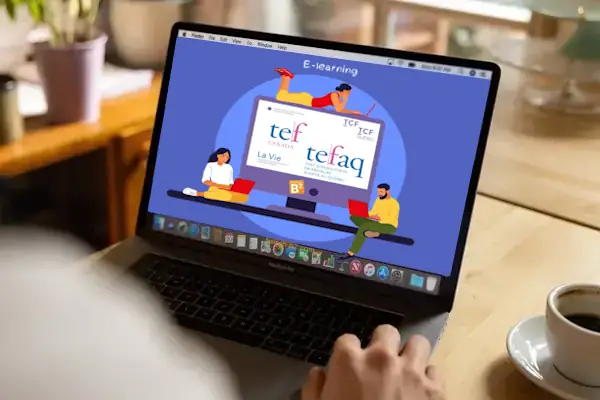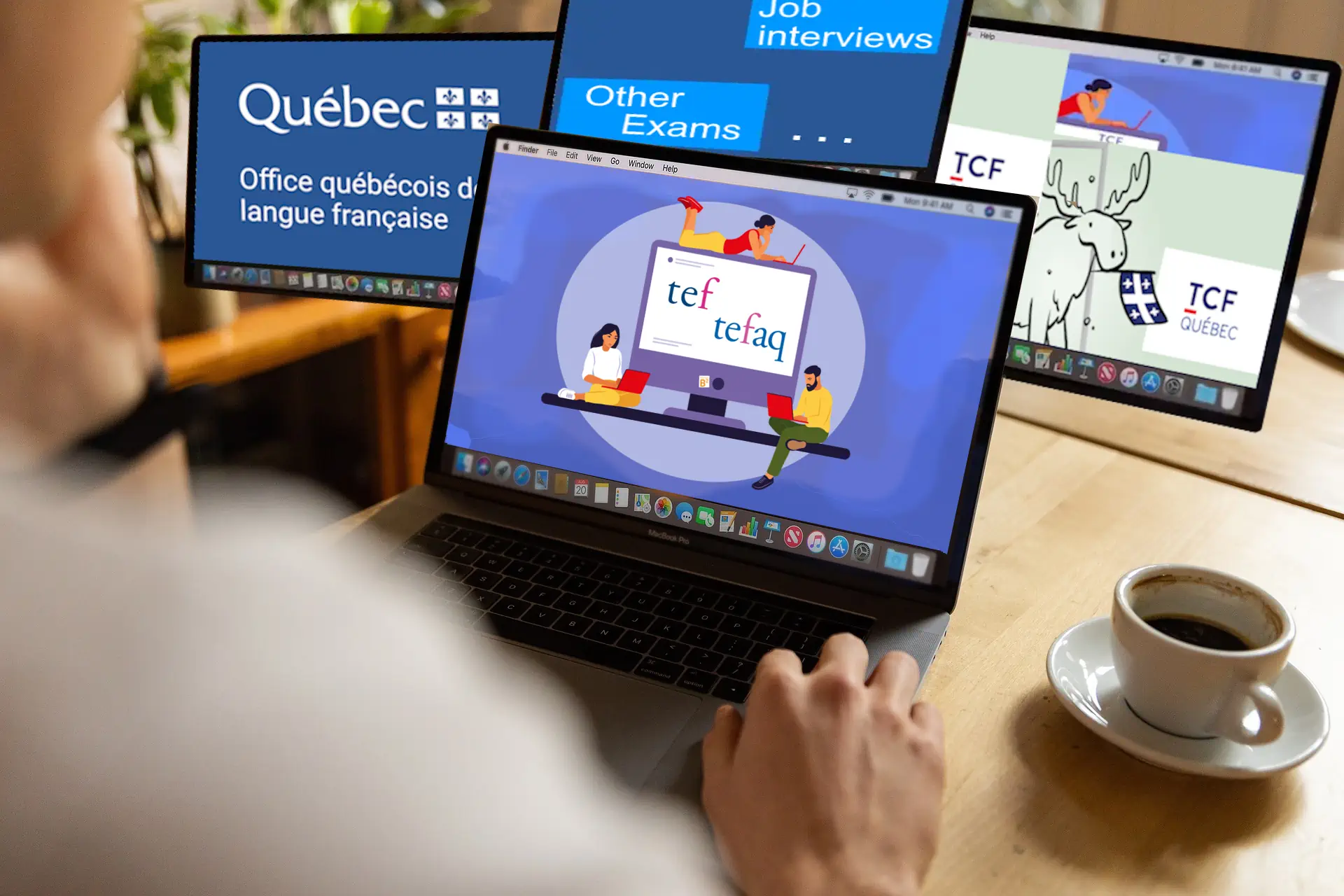Preparation for the two TEF Oral Expression tests
Why this online preparation?
Who is this online preparation for ?
The price of this training course
Testimonials and marketing
A few testimonials to better understand
how my students perceive my courses
(These testimonials refer to courses Face-to-Face/online, based on the content of this site, with intensive exam simulations.)

혹시 TEF 준비하시는 한국인이세요? 무조건 Gilles 수업 들으세요. 제가 TEF 말하기 준비 코스도 들어보고, 다른 튜터도 만나봤는데, Gilles은 정말 최고의 선생님이에요. 요즘은 어떤지 모르겠는데, 10년전만해도 한국에서 토플은 해커스 학원이 최고였는데, 어쨌든, Gilles은 TEF 시험의 해커스입니다. 말하기 울렁증 없애줍니다. 자연스럽게 말하는 방법 알려줍니다. 제가 다른 일로 바빠서 TEF 공부 제대로 못해서 1년이 걸렸는데요. 다른 영역은 다 나오는데 말하기만 B1 못 벗어났어요. 열흘동안 8번 수업 듣고, B2 받았습니다. 일단 만나보세요. 무슨 말인지 아실겁니다.
« Gilles ne donne pas seulement des conseils pour préparer l’oral du TEF, il aide aussi à parler plus naturellement.
Comme j’ai appris le français toute seule, j’étais toujours moins à l’aise à l’oral. J’ai passé le TEF plusieurs fois depuis un an. J’ai obtenu NCLC 7+, mais à l’oral c’était un vrai challenge pour moi.
J’ai essayé différentes choses pour améliorer mon résultat. J’ai suivi un cours spécial TEF dans une école de langues et j’ai pratiqué avec d’autres profs privés… mais jusqu’en juin de cette année je restais au niveau 5 (B1). Puis, dix jours avant mon examen de fin août, j’ai rencontré Gilles. On a eu huit cours ensemble, mais ça a complètement changé ma façon de voir l’examen et le français parlé. Résultat : j’ai enfin eu B2 à l’expression orale!
Franchement, je me dis que j’aurais aimé le rencontrer plus tôt. Si vous préparez le TEF, je vous conseille vraiment d’aller voir Gilles. Il connaît super bien l’examen, mais surtout il vous aide à dépasser la peur de parler et à prendre confiance en vous. Surtout si, comme moi, vous êtes plus à l’aise en lecture et en écriture mais que l’oral vous fait peur… Gilles est la personne parfaite qu’il vous faut. »
Sun (Specialiste en pédagogie et formatrice d’enseignants)

« Gilles helped me prepare for my TEFAQ speaking exam in a very short time (5 weeks) with regular classes after which I got B2 on the first try. Due to COVID the classes were online over Skype, however, thanks to Gilles engaging and easy-going approach the classes were as efficient as in-person classes. His method is based on simulation of the real exam situations, with real exam questions. He shared various useful tools to help prepare for the specific exam situations and helped construct workable solutions for any scenario. His website also has a lot of useful information that helps in preparation for the listening part of the exam. Highly recommended. »
Marianna (Conseiller Fiscal)

« Estoy muy satisfecho con las clases de Gilles, empecé con el en octubre de 2022, cuando empezamos me pregunto sobre mi objetivo y le dije poder hablar francés en 1 año; Gilles me dijo que era un objetivo muy lejano, que apuntaramos para finales de diciembre de ese mismo año. Dicho y echo, en diciembre ya podía mantener conversaciones basicas, en marzo ya podía tener juntas en el trabajo en francés y en julio presenté el TEFAQ y obtuve B2 en expresión y comprensión (incluso muy cerca del C1).
He mejorado mi comprensión, pronunciación pero sobre todo mi forma de expresar de y de sentirme cómodo en un ambiente de habla francesa. »
——
I am very satisfied with Gilles’ classes, I started with him in October 2022, when we started he asked me about my goal and I told him to be able to speak French in 1 year; Gilles told me that it was a very distant goal, to aim for the end of December of the same year. That said and done, in December I could already have basic conversations, in March I could already have meetings at work in French and in July I took the TEFAQ and got B2 in expression and comprehension (even very close to C1).
I have improved my comprehension, and pronunciation but above all my way of expressing myself and feeling comfortable in a French-speaking environment. »
Aldo (Accounting and Financial Business Partner)

« Gilles est un excellent professeur qui travaille avec vous en équipe et vous aide à développer progressivement de meilleures compétences en donnant des techniques qu’il faut utiliser pendant l’examen TEFAQ ou TEF. De plus, en utilisant son site web, que je trouve très organisé, efficace et utile (surtout pour la préparation de l’examen TEFAQ) , J’ai également appris pour la vie quotidienne .En fait ce site web m’a aidé à comprendre les deux parties A et B de l’expression orale et à raccourcir mon temps d’apprentissage . Finalement, j’ai obtenu un excellent résultat : C1 .«
Merci beaucoup Gilles
Maya (…)

« Gilles … a une grande expérience dans la préparation des étudiants au TEF, mais il m’a également aidé à préparer le TCFQ. Je le recommande vivement comme professeur…
—–
« Gilles est un professeur absolument extraordinaire qui m’a aidé à atteindre le niveau B2 dans mon TCFQ. Non seulement il a une grande expérience dans la préparation des étudiants au TEF, mais il m’a également aidé à préparer le TCFQ. Je le recommande vivement comme professeur pour apprendre le français et réussir l’examen. Il ne vous aide pas seulement à vous préparer à l’examen, mais il s’assure également que vous appliquez la langue dans votre vie quotidienne. Apprendre le français peut être une tâche difficile, surtout lorsque votre avenir en dépend, mais Gilles est venu à mon secours. Il m’a constamment soutenu et guidé tout au long du processus. Je ne le remercierai jamais assez pour tous les efforts qu’il a déployés pour m’aider.
Gourav (Ing. chimiste)

一年前开始跟Gilles上法语课. 一星期一次。那时候我可以读懂中等程度的法语, 但基本上不能开口交流。Gilles 帮我去掉心理障碍,建立信心。而且他教语法和发音很有经验。我 现在能跟我的魁省同事进行日常对话,我对我的进展很满意。就我自己的经历, 我会推荐给有一定法语基础,但觉得开不了口的人。
« I started to take weekly lessons with Gilles about a year ago. At that time, I was able to read French at an intermediate level, but was essentially not able to communicate orally. Gilles helped me to break this psychological barrier and nurtured my confidence in speaking French. He has a very good and systematic way of teaching pronunciation and grammar, and he always encouraged me to find a « sense » of the French language. Now I am comfortable conducting daily conversations with my Francophone colleagues in French, and I find myself often naturally « switching » to French in professional settings. I am delighted with my progress! I would like to recommend Gilles to anyone who has a basic/intermediate understanding of French but wants to use it in real life. »
Lili (Pathologiste)

« With Gilles, I was able to reach B2 in the TEFAQ oral expression exam within 3 months. We were able to call twice a week before work, allowing me to keep my usual work schedule without a problem.
The lessons were engaging, lighthearted, but full of quality teachings improving my ability to express myself in French and while feeling more comfortable in the language.
The focus of each session is to practice “exam scenarios” that apply to real life situations. Through this technique I was able to practice specific turns of phrase and better integrate them into my everyday language – which is ultimately more important than just reaching B2 😊.
I definitely recommend Gilles to anyone wanting to improve their French or pass proficiency exams. »
Matt (Financial Analyst)

« Je tiens à exprimer ma gratitude à Monsieur Gilles par son excellent travail. Il est très sympa et agréable.
Sa capacité à expliquer clairement les stratégies pour surmonter l’examen sont très efficaces et le processus d’apprentissage est très motivant. En plus, il offre une méthodologie très practice et efficient . Grâce à son travail j’ai réussi le TEFAQ au niveau B2. »
Isabel (Enseignante)

« Avec l’aide de Gilles tout a été très facile pour réussir mon TEFAQ niveau B2. Merci beaucoup pour être un très bon professeur et surtout pour ta disponibilité de te lever tôt a cause de mes horaires de travail. »
Carlos (Ingénieur Civil)

» I can’t thank Gilles enough! With him, my French classes became a game-changer, propelling my progress at lightning speed. Always so competent, knowledgeable, patient, and incredibly well-versed in all things about TEF, Gilles provides me with a treasure trove of amazing resources to help us succeed. And on top of all that, he’s an extraordinary person, with unmatched kindness and warmth. I passed my exam on the first try; with him, we explored every nook of the oral exam, he prepared me for a multitude of topics, and offered enlightening perspectives to approach things from a fresh angle. Not to mention, he generously shares his notes and audio recordings, which are invaluable for post-class revision. I highly recommend Gilles to anyone preparing for the TEF.
_______
« Je ne saurais jamais assez remercier Gilles! Grâce à lui, mes cours de français ont été vraiment formidables et j’ai progressé à une vitesse folle. Toujours aussi compétent, instruit, patient et incroyablement bien informé sur tous les aspects du TEF, Gilles met à notre disposition une tonne de ressources exceptionnelles pour nous aider à réussir. Et en plus de ça, c’est une personne extraordinaire, d’une gentillesse et d’une bienveillance incomparables. J’ai réussi mon examen du premier coup; avec lui, on a vraiment bien travaillé sur l’examen oral, il m’a préparé à une multitude de sujets et m’a offert des perspectives differentes pour aborder les sujets sous un nouvel angle. Il partage généreusement ses notes et enregistrements audios, qui sont d’une aide précieuse pour réviser après les cours. Je recommande vivement Gilles à tous ceux qui passent le TEF. »
Priscila (Chef de projet) Résultat TEF Expression Orale: C1
Waiting is not an option!
Get started now
with free content!
ou
There’s content, and it’s at a great price!
If you want to review the structure of this training course before :
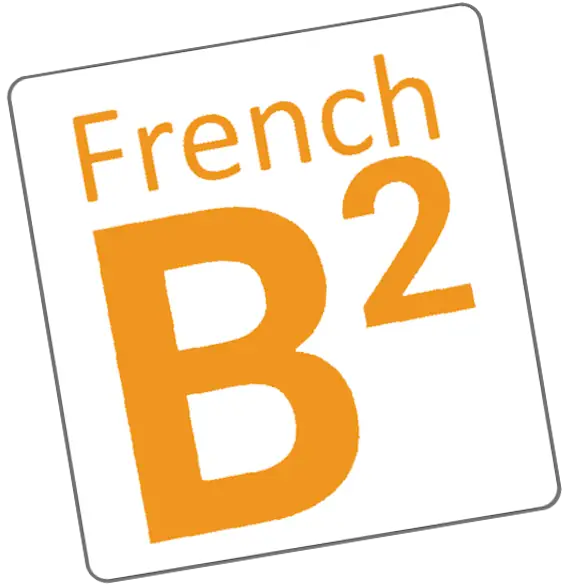

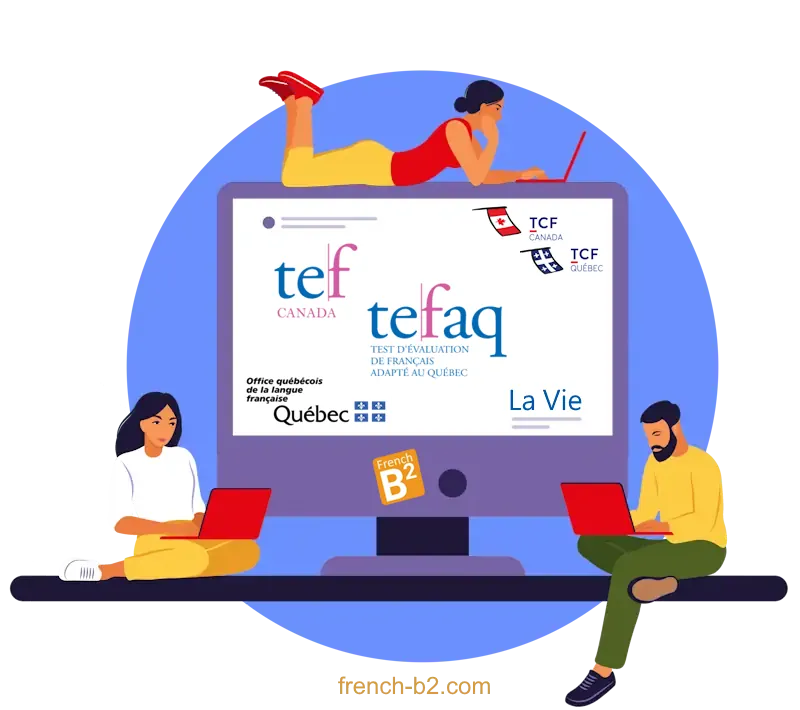



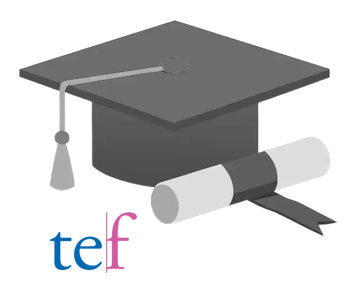

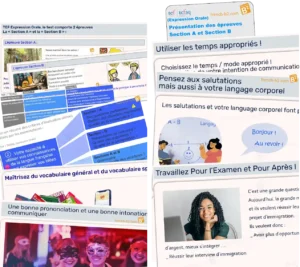
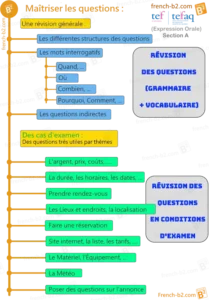
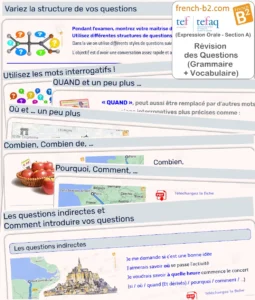
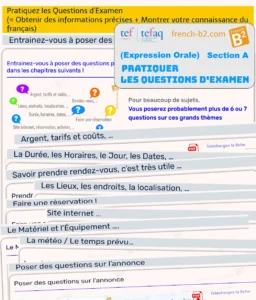
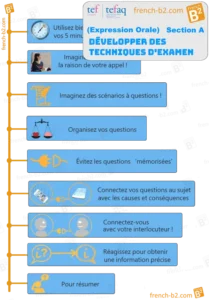
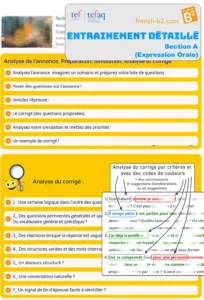
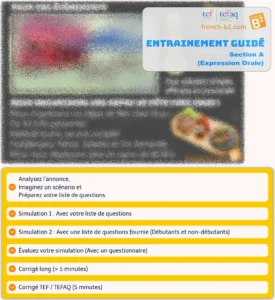
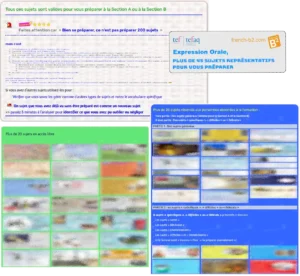
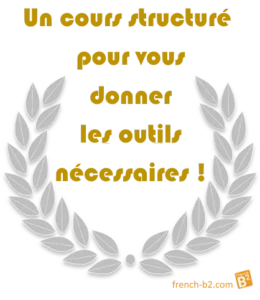
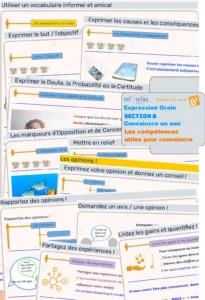
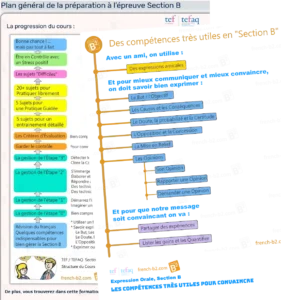
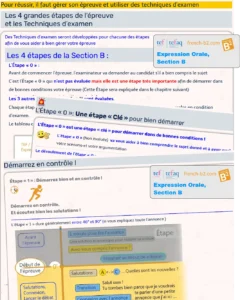
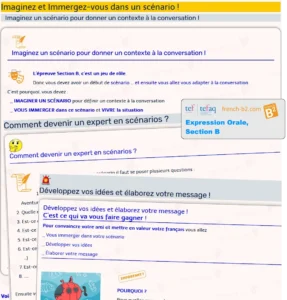
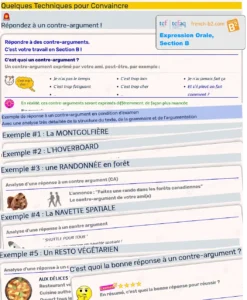
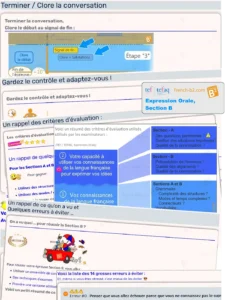
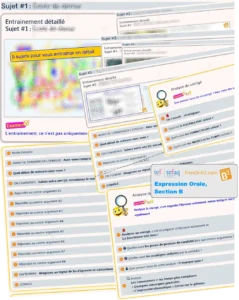
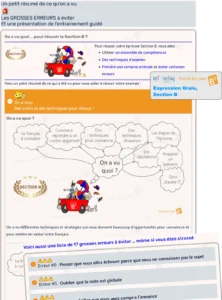
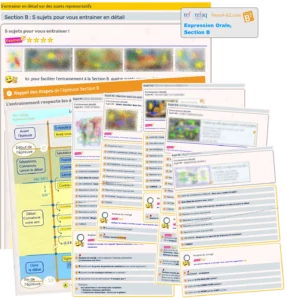
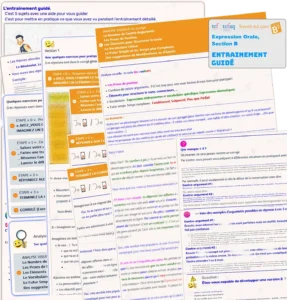
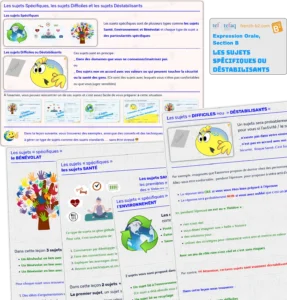
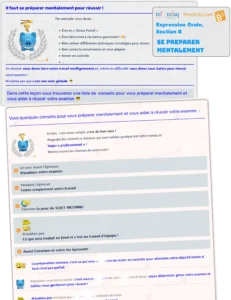
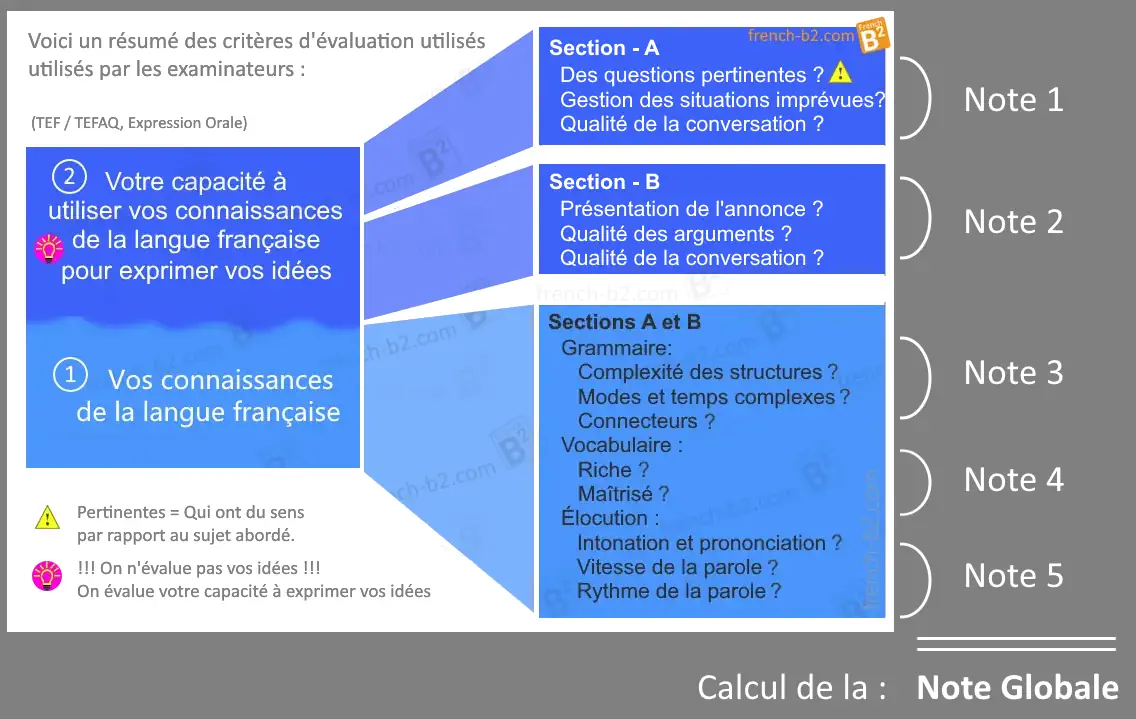
 Thanks to this preparation, you will save the cost of tutoring hours that would be necessary to acquire the methodology, tools, and knowledge explained here.
Thanks to this preparation, you will save the cost of tutoring hours that would be necessary to acquire the methodology, tools, and knowledge explained here.